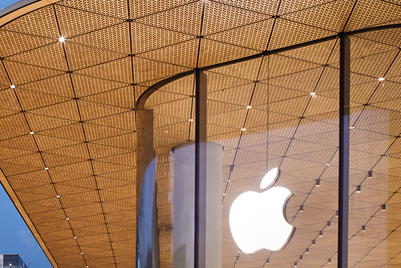
Skyrocketing prices for five-star hotels, top boarding schools, and rare liquors are boosting an already robust Consumer Price Index (CPI) for luxury goods in China, according to a report released by the Hurun Research Institute on September 6.
China’s luxury Consumer Price Index (CPI), which tracks the prices of luxury goods marketed to the country’s 1.47 million high net worth individuals, saw a 4.1% jump during the June 2017 to June 2018 period compared to the previous year period’s 3.6% rise. It caps an amazing 10-year run during which China’s luxury CPI jumped 82%.
For comparison’s sake, The Forbes 400’s own luxury price index, called the “Cost of Living Extremely Well Index” (CLEWI), which assesses the price changes of a basket of 40 luxury items, saw a 1.7% increase in 2017 and has edged up an average of 5% annually since 1982. China’s own CPI increased at a rate of 1.9%.
To determine the luxury CPI, Hurun assesses the price changes of a basket of 108 high-end goods across 11 categories: real estate, health, education, luxury tourism, weddings, watches and jewelry, accessories and beauty, cruises and private jets, lifestyle, liquor and cigarettes, and cars. Of the 108 goods measured, 38 of them are imported.
Luxury travel was a major contributor to the rising index, with an 8.5% rise in prices after a decline the year before. Hotel prices were the main culprit, with the nightly cost of a presidential suite at the Peninsula Hong Kong and the Shangri-La in Shanghai soaring by just over 25 and 20%, respectively. While the average cost of taking a private jet was down, the cost of a first-class airline ticket for a family of five to Singapore increased by just over 14%. Those embarking on the ever-popular polar cruise will also face a price hike: a 22-day stay in the deluxe suite of the Island Sky Antarctic Luxury Expedition Ship rose in price by nearly 23%.
Education prices for prestigious universities and boarding schools saw the highest growth in 10 years, buoyed by a renowned higher education school in China as well as a slight rise in costs for studying abroad programs in the U.S., measured by Phillips Academy, which, according to Business Insider, is the best school in America.
But it was the prices of baijiu and other high-end spirits that saw the most change from the year before, leaping by 12% and led by a 40% price increase for a 500 ml bottle Kweichow Moutai aged 30 years. The Flying Fairy Moutai, at a whopping $237 a bottle, saw a price increase of 15% from the year before thanks to a supply shortage that pushed demand through the roof. Meanwhile, the price of high-grade Hennessy cognac rose more than 27%.
Rolls Royce Phantoms and Tesla Model Xs contributed a 3.1% rise in the car class, while Apple’s new iPhone X—which was priced higher in the China market—helped take the accessories and beauty category up by more than 7%. Patek Philippe’s Nautilus watch, the Hermès crocodile leather Birkin bag, and real estate value for a Hangzhou villa were among the other luxury products seeing considerably higher prices in the period.
The index for China’s HNWI’s has risen 89% since Hurun started doing the CPI in 2006.




.jpg&h=334&w=500&q=100&v=20250320&c=1)

.jpg&h=334&w=500&q=100&v=20250320&c=1)
.jpg&h=334&w=500&q=100&v=20250320&c=1)
.jpeg&h=334&w=500&q=100&v=20250320&c=1)

.jpg&h=334&w=500&q=100&v=20250320&c=1)
.jpg&h=334&w=500&q=100&v=20250320&c=1)



.jpg&h=268&w=401&q=100&v=20250320&c=1)


.jpg&h=268&w=401&q=100&v=20250320&c=1)

